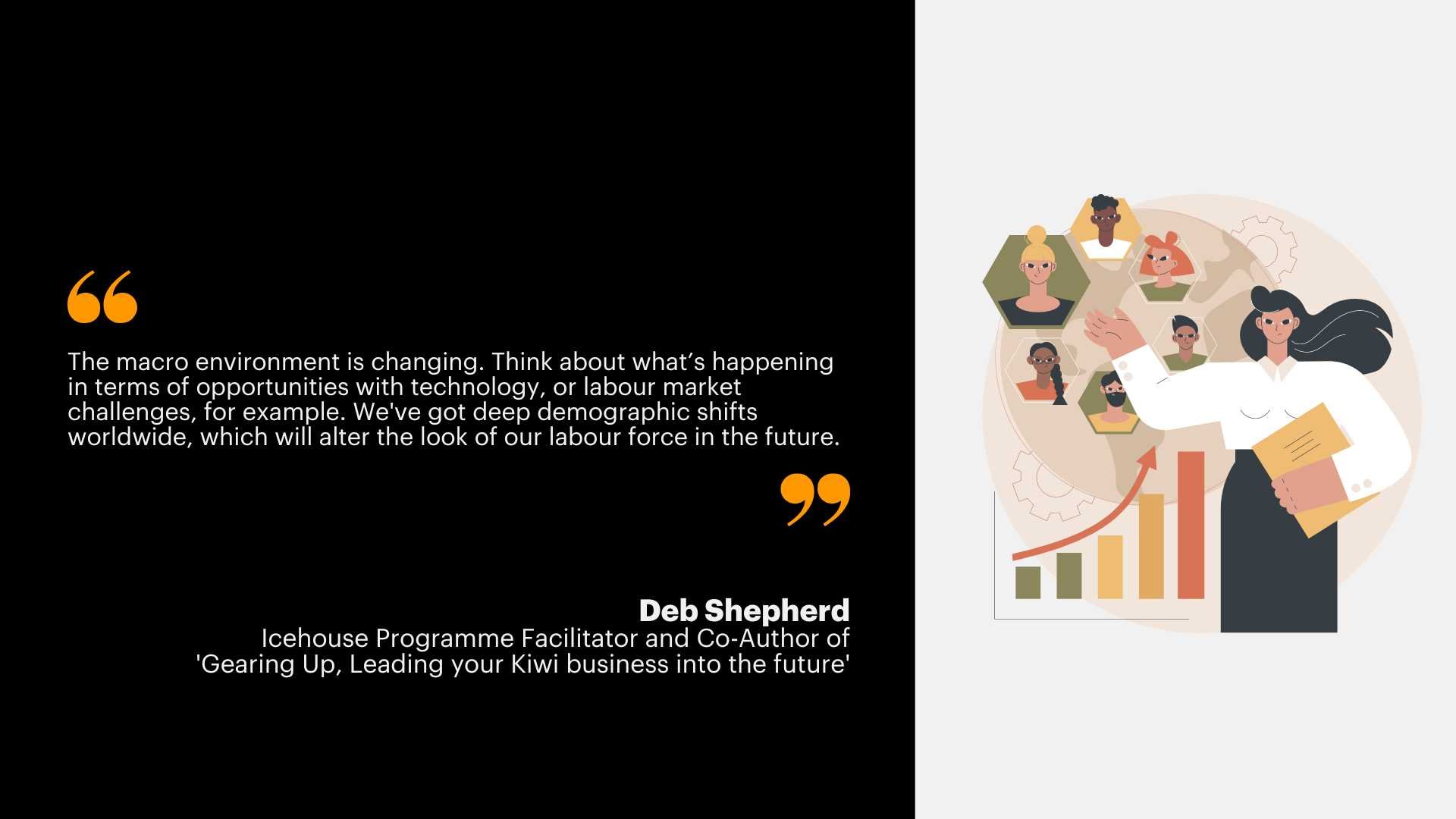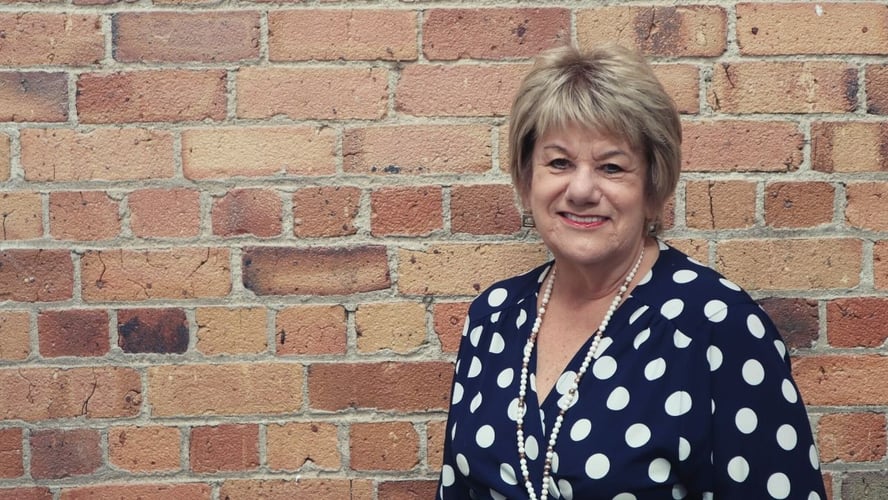The Four Circles – The Business

The Four Circles underpin the guiding principles of The Icehouse’s flagship Owner Manager Programme (OMP) and, to a great extent, the philosophies of The Icehouse programmes in general.

The four circles of ‘You’, ‘You In The Business’, ‘The Business’ and ‘You In The Community’ interconnect and overlap and, when in harmony, make running a business more stimulating, life-enhancing and rewarding – often in ways that go beyond financial profit.
The Business circle, as defined in ‘Gearing Up, Leading your Kiwi business into the future’ by Darl Kolb, David Irving, Deb Shepherd and Chris Woods, Auckland University Press, 2020, includes ‘such things as its purpose, values, competitive advantage, core competence, strategy, business model, and assets and liabilities. A business plan that describes the current state of the business and what it expects to achieve in the future should capture these aspects of ‘Your Business’.’
All four elements of the circle are morphing rapidly in today’s business landscape, particularly around you and your place in the community, but perhaps none more so than ‘The Business’ itself, where the ever-evolving technology landscape, for example, requires businesses to adapt and adopt and be flexible quickly to stay relevant, while the shortage of skilled labour, supply chain disruption, material and transportation costs and more, are placing significant pressure on owners.
Throw in global economic uncertainty and current geopolitical events, and these are difficult times for owners. Running a successful business is hard; owners need to keep one eye on the day-to-day but also build an organisation that keeps moving, stays ahead of the competition and can foresee and react to what's coming up next to achieve sustained growth and profitability.
“The macro environment is changing. Think about what’s happening in terms of opportunities with technology, or labour market challenges, for example. We've got deep demographic shifts worldwide, which will alter the look of our labour force in the future,” says Deb Shepherd, co-author of Gearing Up and Changing Gears, and a key figure in the development, design and delivery of The Icehouse programmes, including OMP, since 2001.
“The business of tomorrow, and we don't know whether tomorrow's a year from now or three or five years, will have to look and be different. If we can't keep employing more people to do the stuff that we've always done, what does it look when it comes to getting efficiencies through technology, about changing the way we think? That comes back to viewing the business through a slightly different lens, a future-oriented lens which encourages us all to look up and out from today's business and over the next horizon,” says Deb.
What can owners do? Owners can get stuck on the (albeit understandable) predictable treadmill in that they do business all day, every day, but often don't stop to take stock of how well they're doing it. Owners need to continually ask themselves what are the things that can be improved.
By developing a solid foundation, businesses are better equipped to respond to changes in the market and adapt to new challenges. In short, businesses can’t afford to stand still. A step in the right direction is dismantling that notion of ‘Well, this is how we've always done it. So this is how we will always do it.’
Some things don’t change, a successful business has a well-defined vision, a mission, and a solid strategy to achieve its goals, but the notion of constantly reviewing what’s come before and what’s happening next, resetting, refreshing your thinking, and just thinking a little bit differently is imperative.
CEO of Red Badge Group and an OMP alumni, Ben Wooding’s thoughts encapsulate what’s going on in ‘The Business’ today. “We’ve had this steep growth curve, which we're now trying to get on top of internally, and really set ourselves up with strong system and process so that we can then look to grow again.
“At the moment, we’re exploring what that looks like. Do we just stay in New Zealand? Do we look overseas? Do we look at acquisitions? And I think, at the moment, the economy and that outlook are going to play a big part of that. So we're keeping a close eye on what's happening in that space.”
Ben’s role as CEO came about as a response to his OMP experience, and for Ben, and owners alike, OMP can help de-fog the crystal ball, and provide a clearer vision and a robust pathway for the future.
The Four Circles can also guide owner managers get clarity and confidence around critical next steps, establish where they want the business to be in the near and not-so-near future, and ultimately, help bring them closer to the success they deserve.
Find out more about The Four Circles concept and how it relates to your business.
For information on programmes, workshops and business coaching services from The Icehouse, click here.
For more business ownership and leadership advice, check out more of our resources.
Icehouse Alumni? For exclusive content on Icehouse Central, register now.


